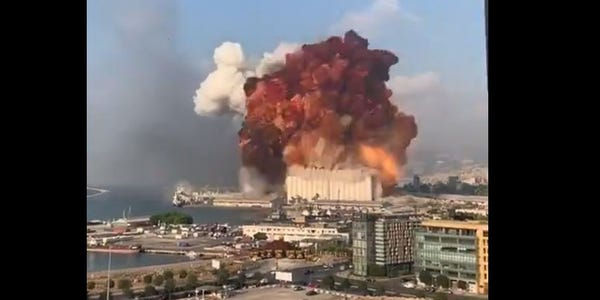Lebanon Rocked by Powerful Explosion
- inksocietymc
- Sep 1, 2020
- 2 min read
By Phillip Park
Sycamore Canyon School

On August 4, two explosions, with the second much more destructive than the former, rocked Beirut, Lebanon, killing over 5,000 people and toppling buildings. The second explosion created a shockwave that shattered glass as far as two miles, destroyed massive amounts of structures and buildings, among which were grain silos with almost 85% of Beirut's grain.
The initial blast has been found to have been caused by a fire on the port. According to the New York Times,“Officials said it appeared the larger blast was caused by the detonation of more than 2,700 tons of highly explosive ammonium nitrate that had been stored in a warehouse at the port since it was confiscated from a cargo ship in 2014.”. They are unsure whether the fire was an accident or the result of an intentional attack from a bomb or rocket. Ammonium nitrate can have up to 40% as much power as TNT, and accidents like this one have happened before, on a smaller scale, in multiple countries.
The explosion affected multiple hospitals, with 4 of them so severely damaged that they could not accept patients for treatment. Many doctors and nurses were killed in the blast, and in one hospital, the ceiling fell on patients, injuring some and delaying treatment. The blasts damaged or destroyed seventeen containers,each containing tens of thousands of face masks and other COVID - 19 related material in Beirut, crippling the coronavirus response and introducing a new wave of infections as the Lebanese government appealed for funding relief efforts.
The explosion also affected the economy and morale of the people, as many people were already protesting science last fall, advocating on the sinking value of their currency, a flood of refugees from their neighboring country Syria, and the lack of response to the coronavirus pandemic. The ammonium nitrite also damaged the homes of over 750,000 people, 250,000 of them who have been forced to move. These series of events have called for a renewing wave of protests advocating for a reform of the government, and President Emmanuel Macron of France claims that the aid will “not go to corrupt hands.”
Comments